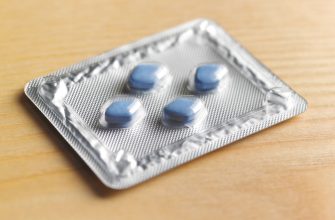No, Viagra-related vision loss isn’t always permanent. While it’s a serious side effect requiring immediate medical attention, many men experience temporary vision changes. The key is prompt action.
Specifically, consult your ophthalmologist or doctor immediately if you experience blurred vision, changes in color perception, or sudden vision loss after taking Viagra. Early intervention significantly increases the chances of full recovery.
This potential side effect stems from Viagra’s impact on blood flow. Increased blood flow, while beneficial for erectile function, can occasionally affect the delicate blood vessels in the eyes. The severity varies, ranging from mild temporary disturbances to more serious conditions. Regular check-ups with your eye doctor, especially if you are predisposed to eye problems, are highly recommended while using this medication.
Remember: This information is for educational purposes only and does not substitute professional medical advice. Always discuss potential side effects and treatment options with your doctor before starting or stopping any medication.
Viagra and Vision Loss: Understanding the Risks
Viagra, while effective for erectile dysfunction, carries a risk of vision problems. This risk is usually temporary, resolving after you stop taking the medication. However, understanding the specifics is vital.
The most common side effect affecting vision is a temporary blue tint to vision or increased light sensitivity. This usually subsides quickly. Less common, but more serious, are issues like non-arteritic anterior ischemic optic neuropathy (NAION), a condition that can lead to permanent vision loss. The risk of NAION is increased if you have existing cardiovascular issues or pre-existing optic nerve problems.
Before starting Viagra, consult your doctor. Openly discuss your medical history, particularly concerning heart health and any prior vision problems. A thorough examination can help assess your personal risk profile. Regular eye exams are recommended, especially if you’re taking Viagra.
If you experience any sudden vision changes while taking Viagra, stop immediately and contact your doctor or ophthalmologist. This includes blurred vision, double vision, or any loss of sight. Prompt attention is critical in mitigating potential long-term effects.
Remember, this information is for educational purposes only, and does not constitute medical advice. Always seek professional medical guidance for any health concerns.
Is Viagra-Induced Vision Loss Reversible? Exploring Recovery and Long-Term Effects
In most cases, Viagra-induced vision loss is temporary. Discontinuing Viagra use is the first step. Recovery often begins within hours to days, though complete restoration can take several weeks.
The severity and duration of vision problems depend on several factors, including the dose of Viagra taken, pre-existing eye conditions, and individual responses. Some men experience minor, short-lived visual disturbances, while others may face more significant and prolonged issues.
While prompt cessation of Viagra usually leads to improvement, consulting an ophthalmologist is crucial. They can perform a thorough eye examination, identify the specific type of vision problem, and monitor recovery progress. Early diagnosis and intervention may prevent long-term complications.
Rarely, permanent vision loss can occur. This is more likely in individuals with pre-existing vascular diseases or those taking higher Viagra doses. Regular eye exams and open communication with your doctor about your health and medications are critical for minimizing risks.
Specific visual side effects like non-arteritic anterior ischemic optic neuropathy (NAION) require specialized treatment. Your ophthalmologist will determine the best course of action, potentially including medications or other therapies to aid recovery and manage potential long-term effects. Following their recommendations meticulously is paramount.
Lifestyle modifications, like managing blood pressure and cholesterol, can support overall eye health and may positively influence recovery outcomes. Maintain a healthy lifestyle to reduce risk factors associated with eye problems. Remember, early action significantly improves chances of a full recovery.








